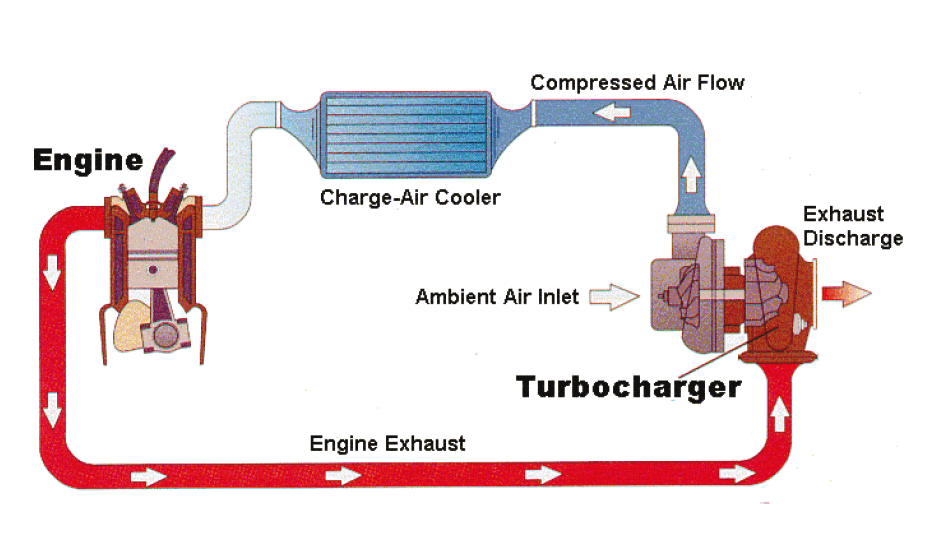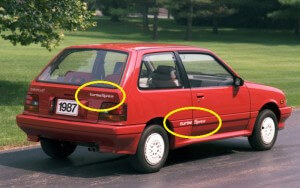Turbo engine. It sounds impressive and powerful – but what the heck does it mean?
Basically, turbo is short for turbocharger – a component that makes your engine work faster and harder. Turbochargers are built into engines to help them accelerate more quickly or haul weight more easily.
If you know how your turbo engine works and how to keep it in prime working condition, it will serve you well for many, many years.
How Does A Turbo Engine Work?
A turbocharger is basically two connected fans. As exhaust leaves the engine, it pushes the first fan. This links up to a second fan in the air intake, which spins faster and forces more oxygen into the engine.

It’s a big old circle: air coming in pushes exhaust out… which pushes air in… which pushes exhaust out… which pushes air in.
As the cycle continues, it pushes everything to go faster and faster. This is how turbo engines get to such incredible speeds – and can get so much power out of small engines.
What Sort Of Vehicles have Turbo Engines?
Turbo engines can be found in all types of vehicles, from the tiny Dodge Firefly to heavy duty pick-ups.
Most manufacturers have at least one turbo vehicle in their line-up – and funny enough, they usually stick it in the smallest car. Turbo works more efficiently on a smaller engine, which is how you end up with a turbo Sprint – ridiculous power in a tiny little car!
You’ll also find a lot of turbo engines in diesel vehicles. Diesel engines work at a much higher pressure than gas engines, which helps the turbo work at top speed.
Turbo also commonly pops up in performance vehicles. Basically, “turbo” has come to mean sporty, fast, and powerful for a reason. If a vehicle needs to do a lot of heavy pulling or quick accelerating, it’s more likely to have a turbo engine.
How Can I Tell If My Car Has A Turbo Engine?
Usually a whine from under the hood is a bad sign – but it also might just be a sign that you have a turbo engine; they make a whistle when they’re running. That said, your engine will always have made that sound – if a whine starts up suddenly and you’ve never heard it before, you should get it checked out.
Another way to tell if your car has a turbo engine is by looking at the vehicle badges or decals – “turbo” might be written alongside the model name on the side or back of your car.
You can also check in the vehicle manual or do a quick online search of your vehicle make, model, and year. You’ll find a whole host of information about your vehicle – enough to keep you busy for days!
How To Take Care Of Your Turbo
Turbo engines work fast, hot, and at a crazy high pressure, so the most important thing for their upkeep is keeping them clean. This means fuel filters, air filters, and oil all need to be changed regularly. Otherwise, particulates can contaminate the system – slowing everything down, gunking everything up, and making for expensive repairs.
Just keep an eye on the manufacturer’s recommended maintenance schedule, and you should be fine! And remember…
Diagnosing And Fixing Turbo Problems
When your turbo engines develops a problem, you’ll probably notice one of several symptoms:
- Engine has a harder time getting up to speed
- Particularly smoky or grimy exhaust
- A louder or more annoying whining sound from the engine
If you notice any of these warning signs, it’s best to get it checked out as soon as you can. I can track down the problem for you with an inspection, which starts at $75 and includes the first half hour of service. I might be able to fix the problem right away, or it might take a bit longer if I have to order parts. Either way, we can draw up a repair plan that works for you.
And no matter what questions or concerns you have about your turbo engine, feel free to give me a call!



